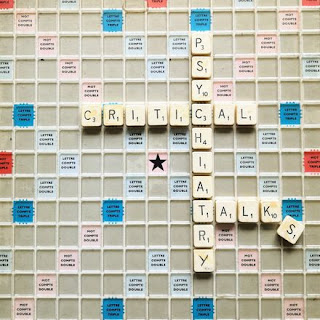I don’t think I fully appreciate all the nuances in the recent debate in
Philosophy, Psychiatry and Psychology (
PPP) about the implications of enactivism for psychiatry. I’ve mentioned before (eg. see
previous post), the book by Sanneke de Haan entitled
Enactive Psychiatry. It was published before Kristopher Nielsen had completed his PhD thesis, in which he had independently developed his own ideas about the psychiatric implications of enactivism. There are differences in their views and they disagree about the significance of these differences. In the
PPP journal, Nielsen (
2021a) compares the two perspectives, followed by comments by de Haan (
2021) and Richard Gipps (
2021) (see his previous
guest blog post), and a rejoinder from Nielson (
2021b).
As I said in a recent previous post, I think enactivism can be a way of revitalising Engel's biopsychosocial model. Mental processes need to be understood in a dynamic, integrated and enactive way, as they are embodied in the brain and the body more generally, and embedded in the environment, which is social and cultural, affording various possibilities of action to the organism (see eg. my article). Mental illness cannot be isolated in material processes in the brain, excluded from people's relationship with their environment.
In some ways, such an anti-reductionist position is not new (eg. see another article of mine). I do think, though, that enactivism can be seen as a more thoroughgoing basis for anti-reductionism. Like Sanneke, I worry that Kristopher's position is not explicitly anti-reductionist enough. There is evidence for this in his interview with Awais Aftab. Kristopher still wants to understand mental disorders in an "entitative and more mechanistic way". He may well make too much of the biological functionality of human values, although I think there is merit in seeing mental illness as failed adaptations, as did Adolf Meyer (see eg. previous post). I summarised, in another previous post, how Sanneke demarcates 'abnormality' from 'normality'. I'm also not sure what Kristopher means by somatic and mental disorders being "probably continuous with each other". As I've highlighted before (eg. see previous post), the organic/functional distinction of mental disorders, which was abolished by DSM-IV, needs to be reinstated.
I also have questions about the implications of Sanneke's views. For example, how do they relate to American pragmatism (eg. see previous post)? For all her emphasis on the existential dimension in mental disorders, how does her perspective relate to existentialism as a philosophy (see eg. another previous post)?
As I've also been emphasising in this blog, there are links with other phenomenological perspectives, such as that of Thomas Fuchs (see eg. previous post); cultural perspectives, such as that of Laurence Kirmayer (see eg. another previous post); and other critical perspectives in psychiatry, not least Foucault (see eg. last post). I have been trying to bring them together under an umbrella term of relational psychiatry.
This is not some grandiose project, but an attempt to encourage psychiatry to move on from its misguided belief that primary mental illness will be found to be a physical disease. Relational psychiatry also has practical implications, and is not merely an out of touch academic dispute about the implications of enactivism for psychiatry. There is some urgency about the need to improve the treatment of people with mental health problems. A recent focus of this blog, for example, has been on the current reform of the Mental Health Act (see eg. previous post), as the rights of people with mental illness can be abused.



























